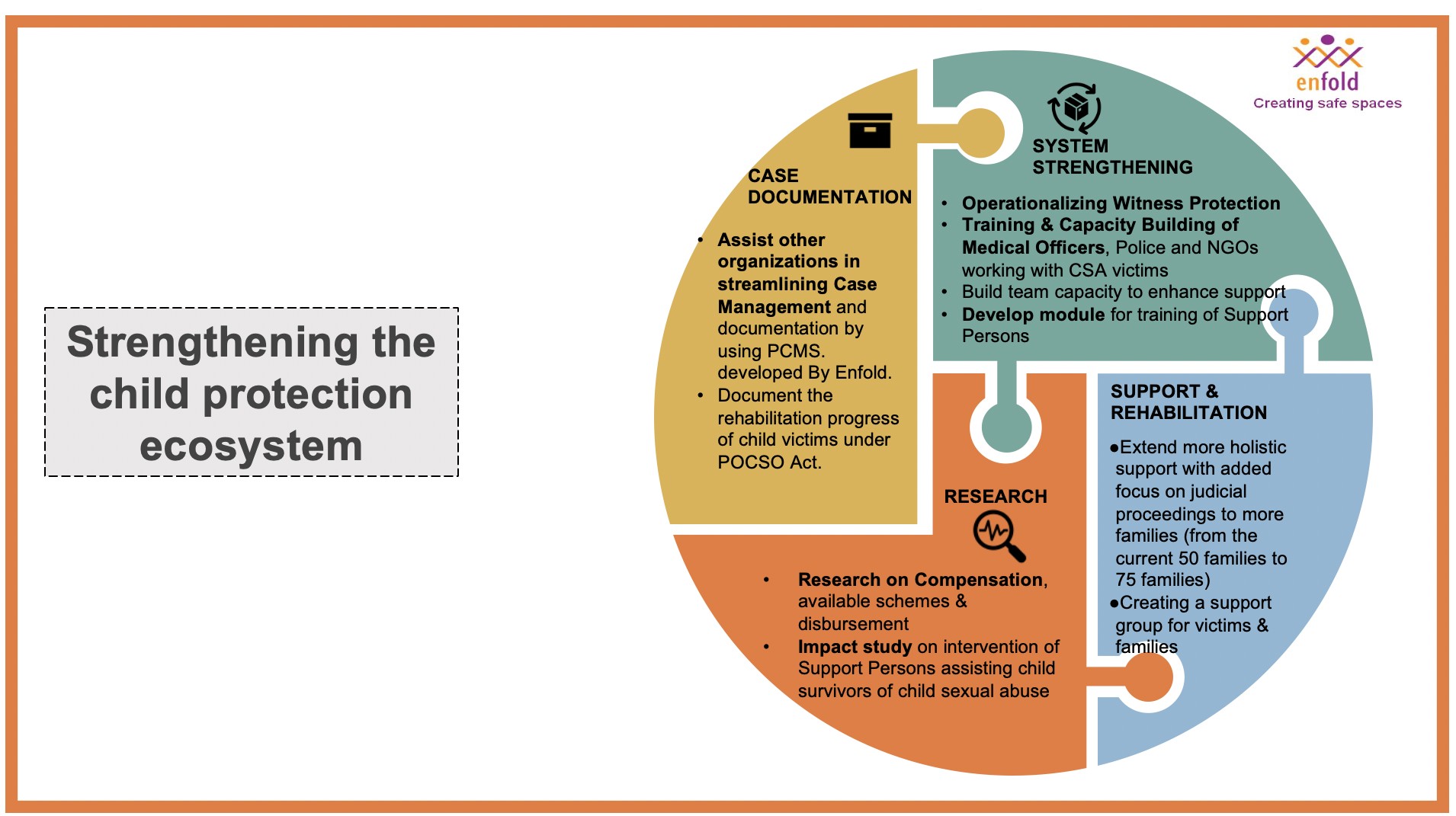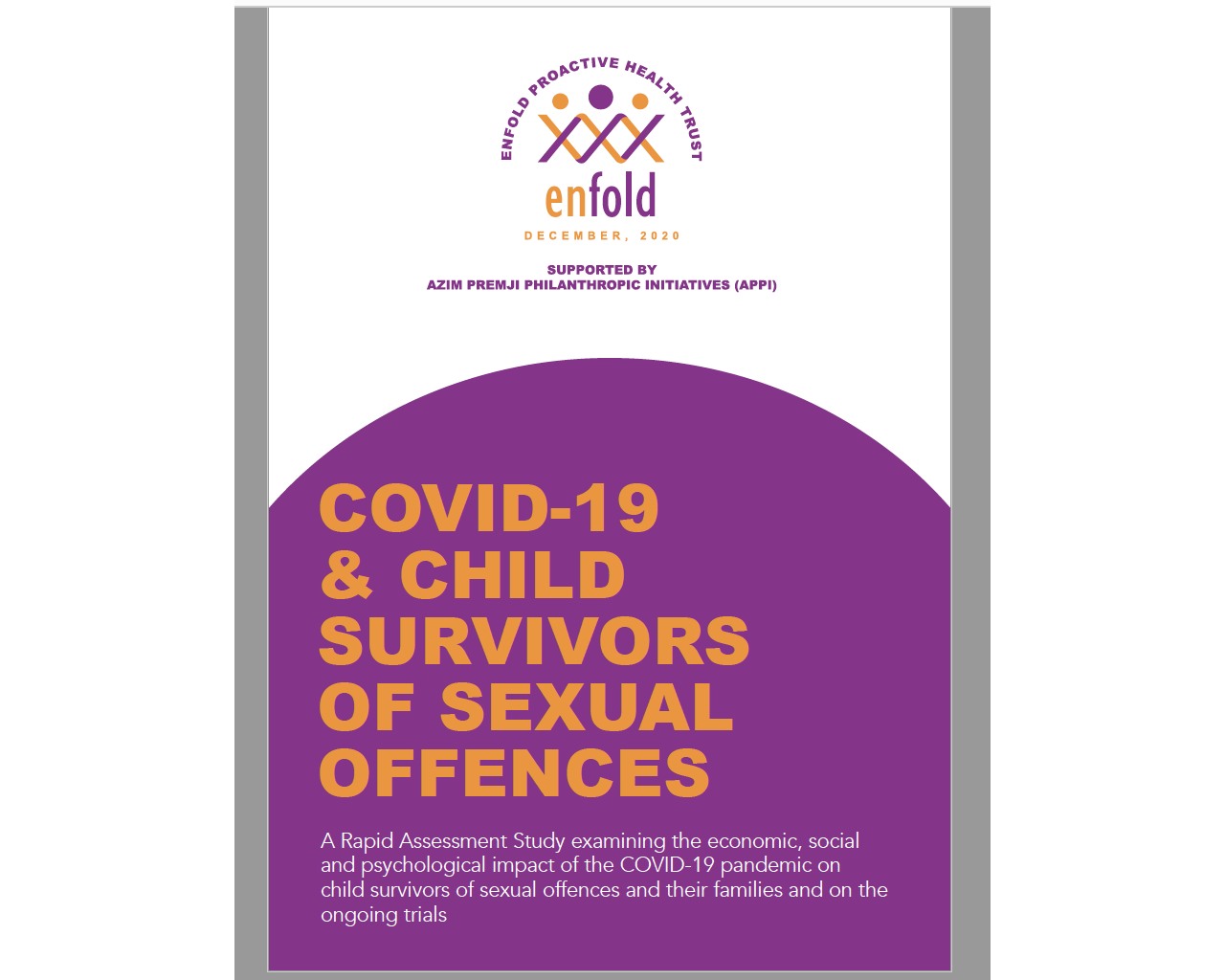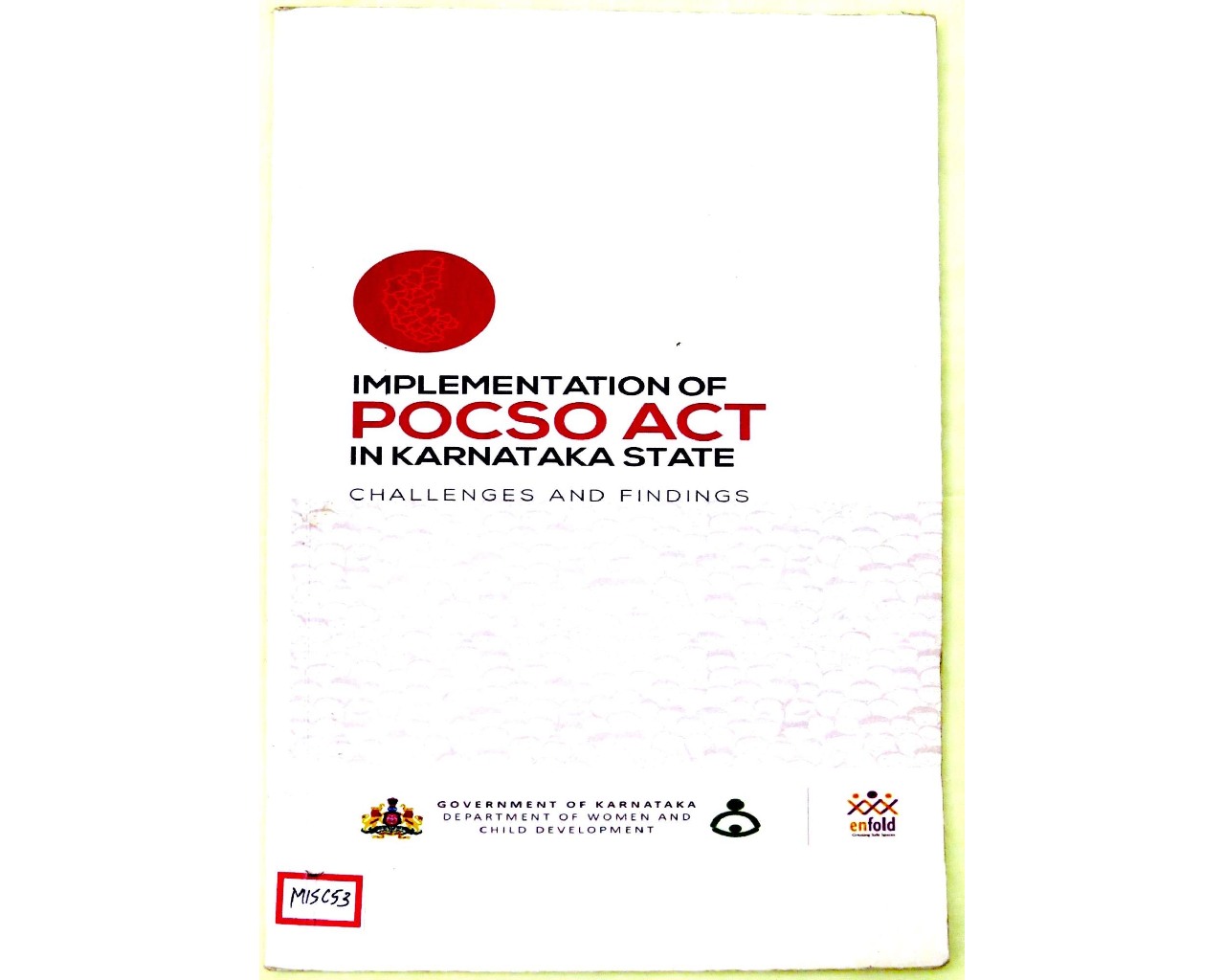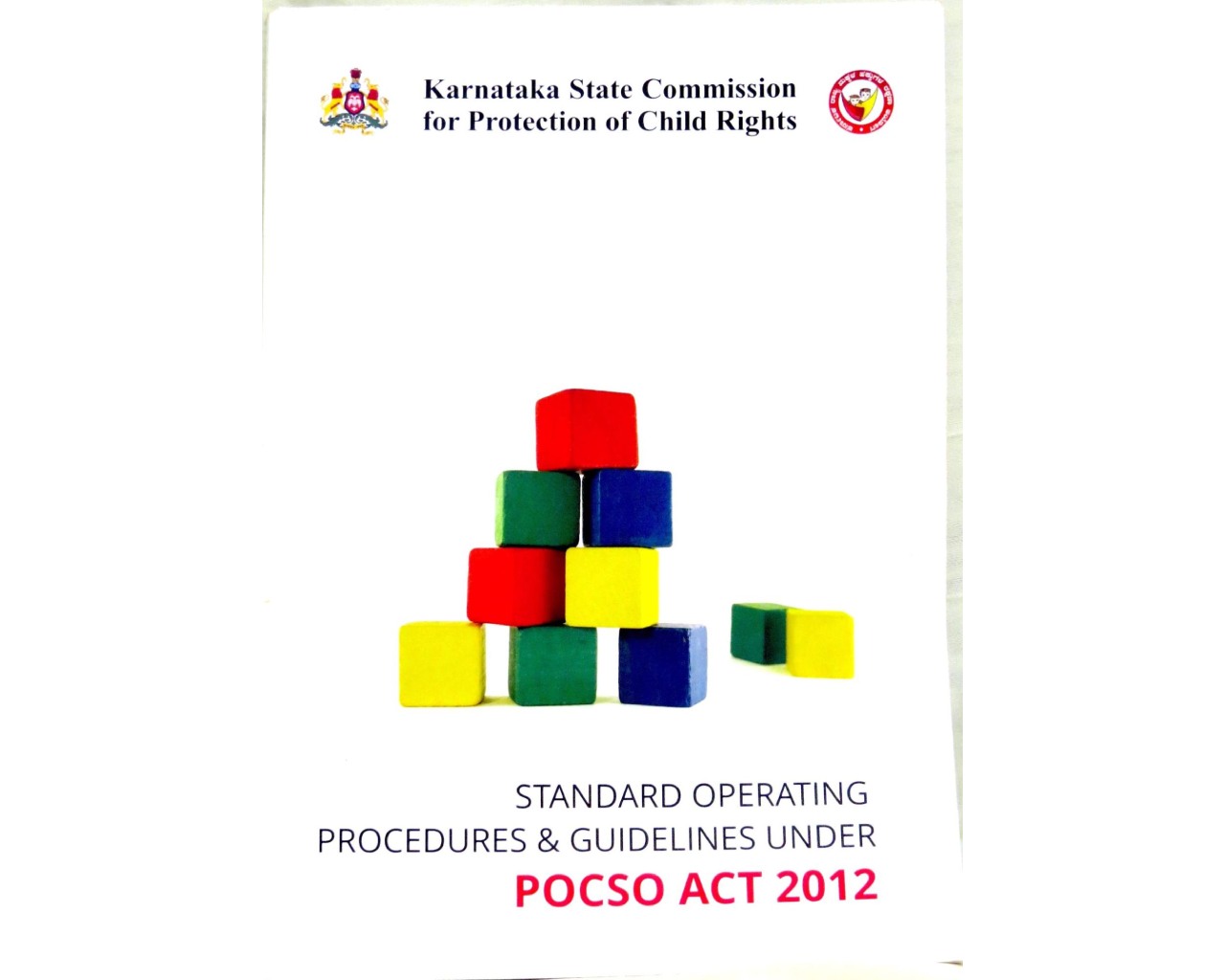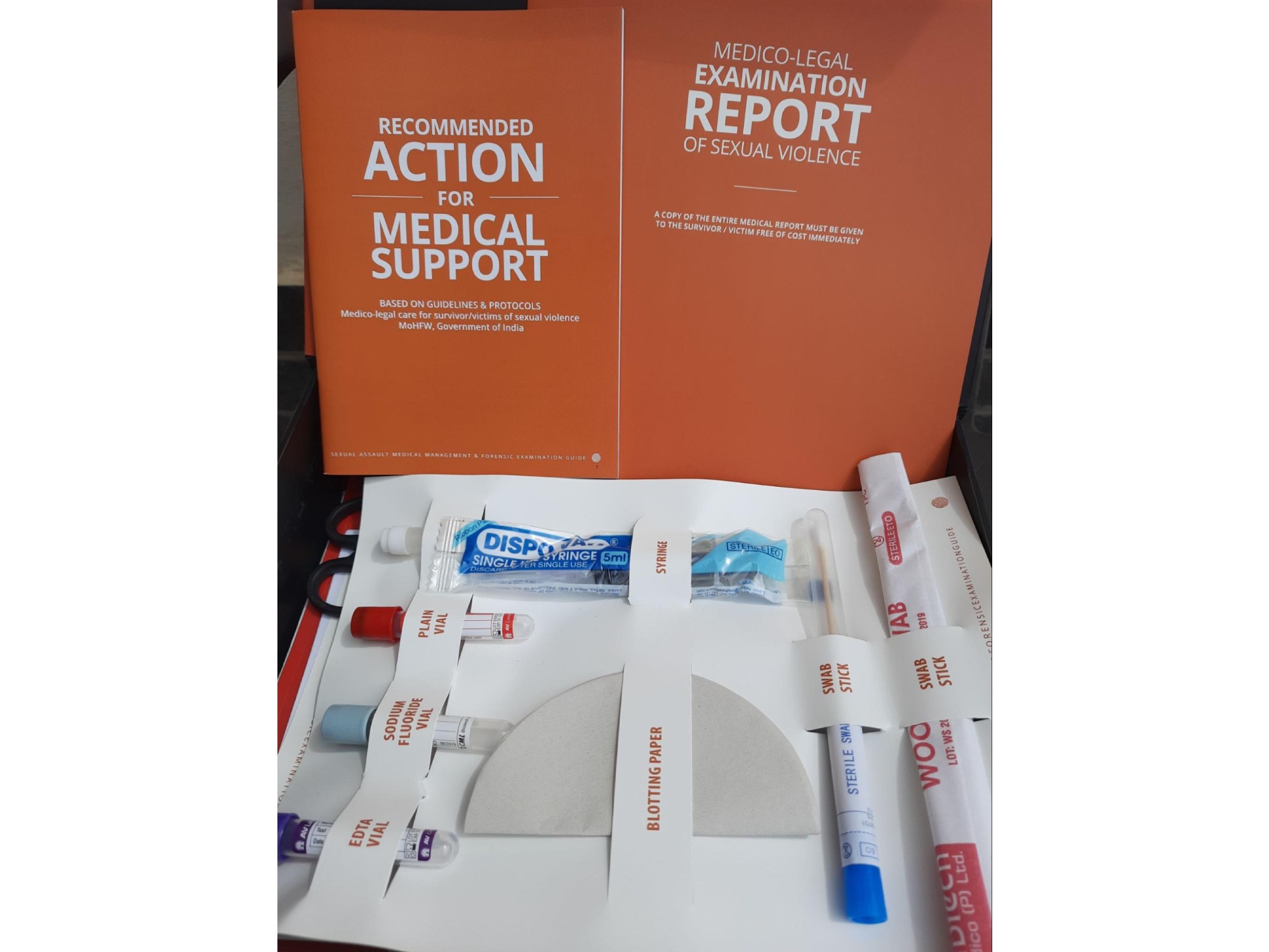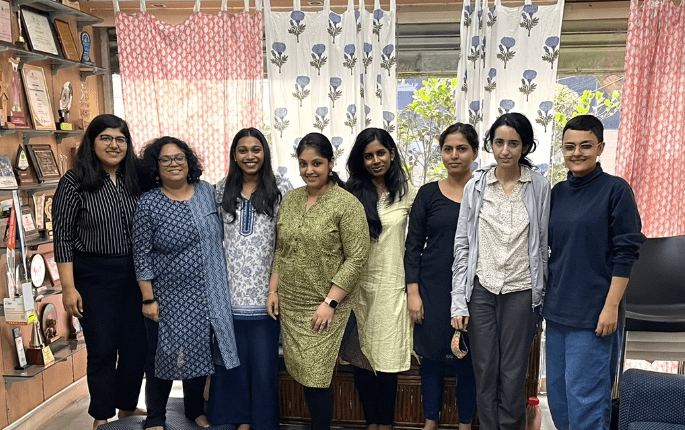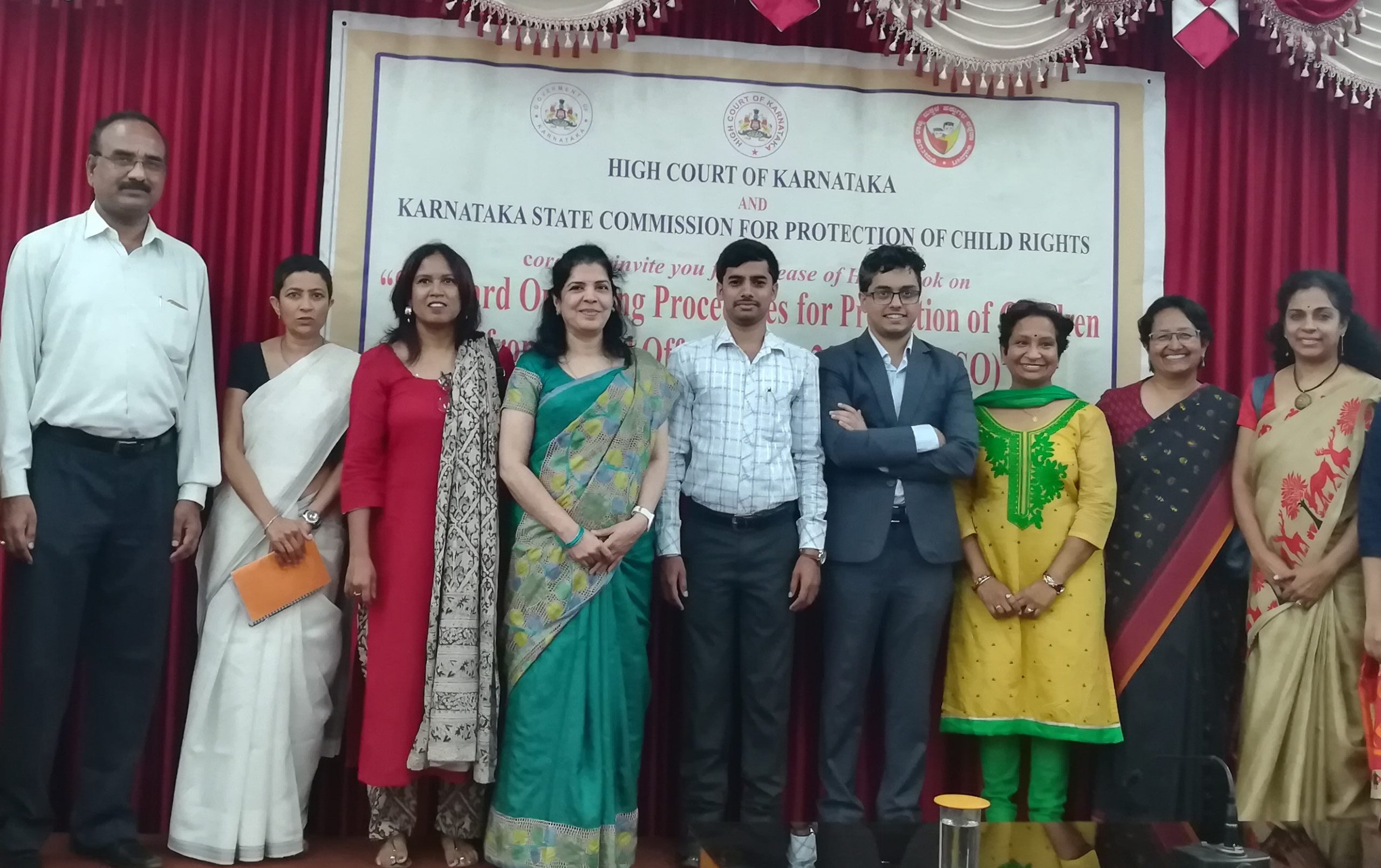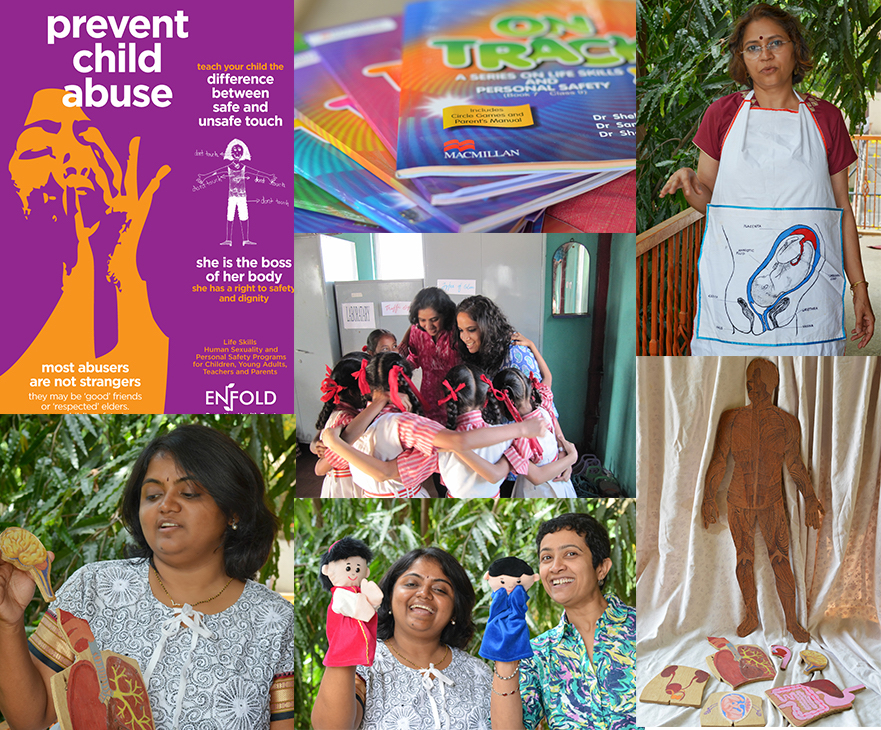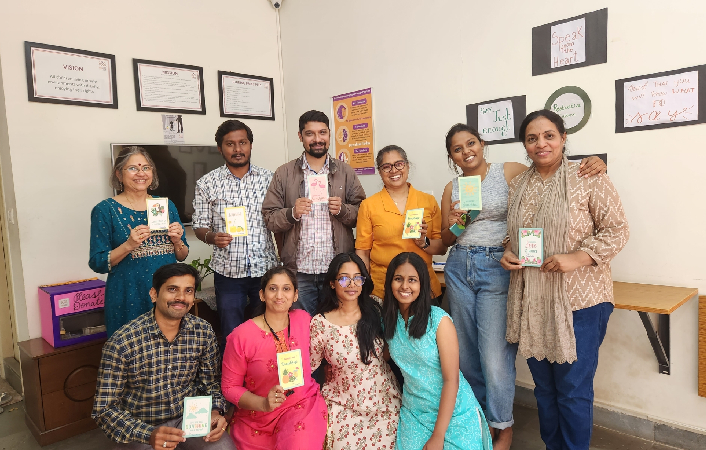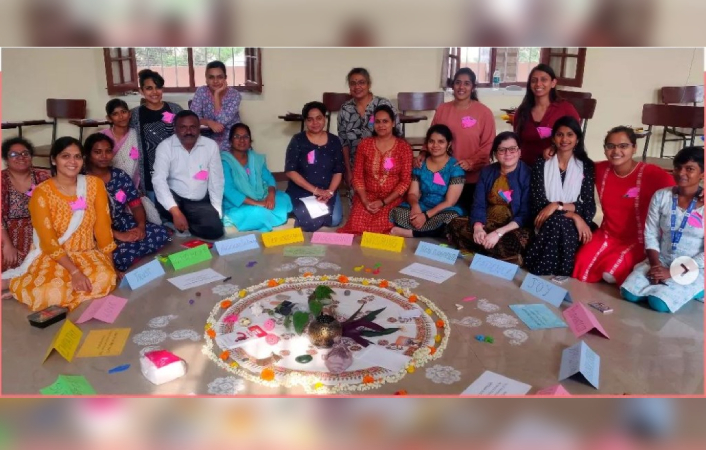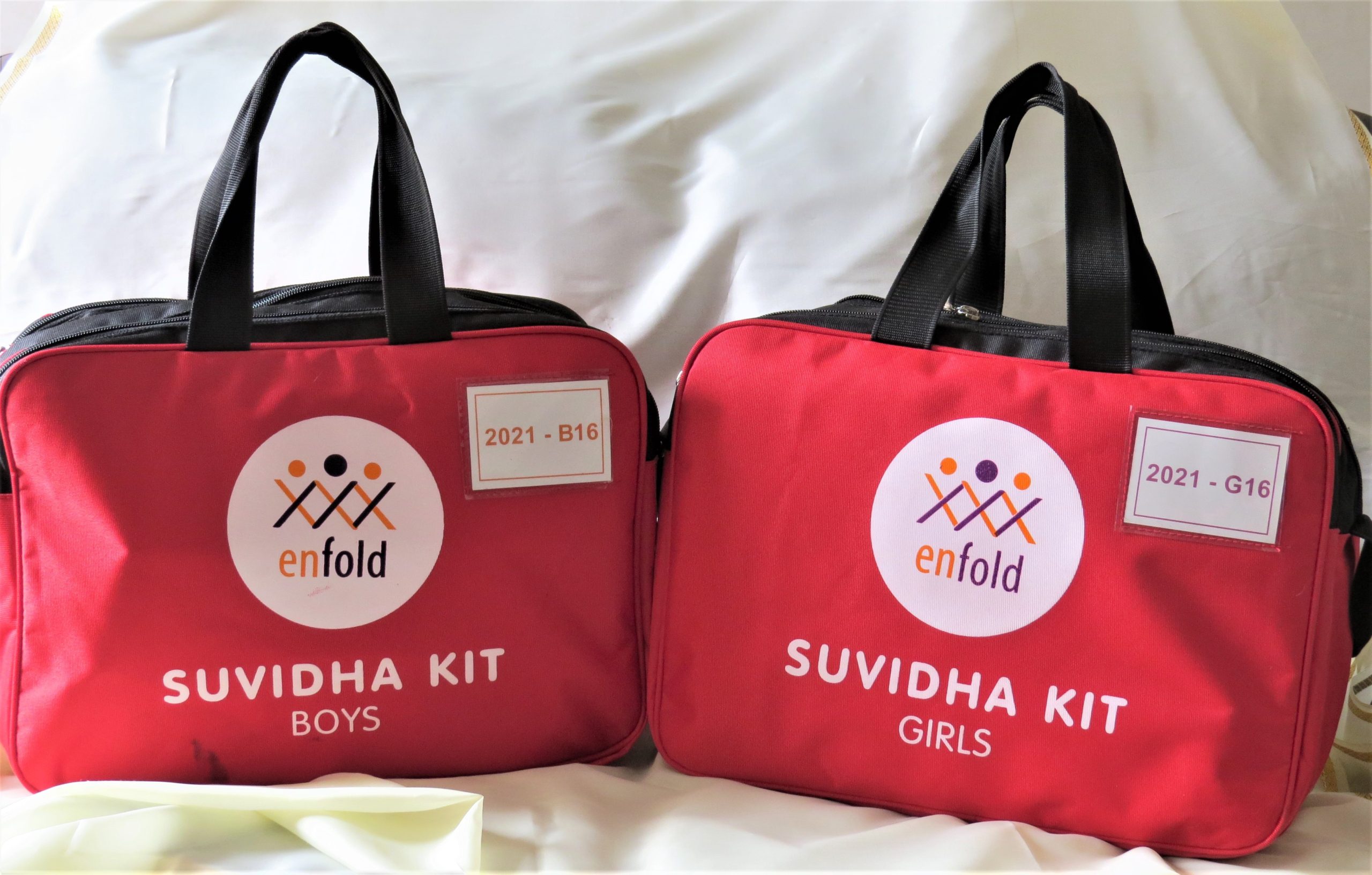The need for support and rehabilitation of child victims of sexual violence
The Support and Rehabilitation team assists children and families who report sexual violence. Team members are appointed by Child Welfare Committees as Support Persons under the POCSO Rules, 2020.
Having worked for over a decade with children who have faced violence and with government stakeholders, the team has insights and understanding of the challenges, loopholes and possible solutions to issues in the criminal justice and juvenile justice systems. Over the years the team has tried to ensure child-friendly procedures prescribed under the law are followed, that the child does not face system-induced trauma and that processes are child centric as far as possible.
Our work with the children and their families
The assistance provided by the team to navigate the complex criminal justice and juvenile justice systems includes:
- Preparing a child and family to report a case of sexual violence; and assist in filing a complaint with the police;
- Supporting the child and family through the various stages of investigation; medical examinations and treatment; Providing support in POCSO cases where minor girls have become pregnant
- Engaging with the Public Prosecutor (PP) prior to and during the trial process, familiarising the child with the court and procedures, supporting them during the trial
- Enabling access to rehabilitation, care and protection services provided for by the State through the Child Welfare Committees, under the JJ Act, 2015, where required
- Providing extended psycho-social care and support for the child and the family;
- Ensuring that the services of experts, special educators and interpreters are made available as and when required;
- Assisting children and families with referral to hospitals like NIMHANS for therapy, treatment and healing as and when required;
- Enabling access to compensation under different government schemes and mobilising donors who can financially support the welfare, educational and medical expenses of children who require the same;
- Connecting the child and family with legal counsel under Section 40, POCSO Act, in order to ensure the child’s participation and that the child is adequately represented during all processes in the court
The Support and Rehabilitation team has limitations with the number of children they can assist at any given time, however, through our direct, on-ground engagement with stakeholders over the years, we have been able to influence systemic changes and a shift in attitude to some extent.
Training Programs offered by the team
Training of child protection functionaries
The knowledge and wide experience the team has gained over the years has led to team members being invited as resource persons to conduct training for stakeholders. Enfold has created a detailed training programme for each stakeholder involved in the implementation of POCSO Act, based on their responsibilities and duties. This includes child development, child abuse, as well as the laws and support systems available to children who have faced sexual violence.
Support Persons Training Programs
Enfold along with state departments of 5 States are engaged in identifying, training, and handholding Support Persons to assist child victims under POCSO Act. By setting up a convergent and sustainable mechanism for the appointment, monitoring and guidance of Support Persons, the intention is to have this initiative continue, once Enfold is not actively engaging with the state. With the support of UNICEF and state departments, training programs have been conducted in several states across India, including Jharkhand, Karnataka, Manipur, Rajasthan, Uttar Pradesh and West Bengal.
POCSO Stakeholder training programs across India:
The stakeholders who are trained by the teams are Government designated Support Persons, members of Child Welfare Committees (CWC), Police officials and State and District Legal Services Authorities, Doctors, Staff of District Child Protection Units and One Stop Centres, and Prosecutors.
Training for Medical Personnel on medical management of victims of sexual violence:
With medical doctors adopting a generalised and standard approach to responding to victims of sexual crimes, their medical opinions and reports are left wanting and fall short in court, during trial. It is apparent that the non-inclusion of medical management of sexual violence in the MBBS curriculum is being felt by the doctors on the ground. In order to set right this issue and to train doctors to respond to child victims of sexual violence in a more humane and case-specific manner, national level experts are invited as resource persons for training of medical doctors.
Training on Prevention of Sexual harassment at the workplace:
Our journey began with team members being involved in the drafting of Bangalore University’s Policy against Sexual Harassment and Discrimination in 2011 -12. Since then, team members conduct training and sensitization at different companies, institutions and various other organizations in Karnataka on Prevention of sexual harassment at the workplace, the available redressal mechanism and the obligations of the employer. Representatives of Enfold are invited to be members of several Internal Committees as external NGO members, in private and Government organizations.
Enfold, in partnership with Prerana Mumbai, has published and released a ‘Handbook for Support Persons’ which is intended to assist Support Persons and other stakeholders involved in the implementation of POCSO Act to respond to children in an empathetic and informed manner. It was released online on March 10th, 2022 by Hona’ble S. Justice Ravindra Bhat, Judge, Supreme Court along with Ms. Soledad Herrero Chief of Child protection, UNICEF India and participants from across India. The handbook is a guide and ready reference as per the POCSO Rules 2020 which provides for support persons in POCSO cases to assist the survivors of sexual violence through the criminal justice system. The handbook helps support persons understand their roles and responsibilities with respect to the Act, the victim, the support system, and other stakeholders. The Handbook has since been translated to Hindi, Kannada and Bengali.
Handbook for Support Persons ( Hindi version)
Handbook for Support Persons ( Kannada version)
Handbook for Support Persons in Bengali
A Rapid Assessment Study was undertaken by Enfold in Bangalore to understand the impact COVID-19 lockdowns on the child survivors of sexual abuse and their families whose cases are pending before the Special Court. The Rapid Assessment Study examines the economic, social and psychological impact of the COVID-19 pandemic on child survivors of sexual offences and their families and on the ongoing trials. The project was supported by Azim Premji Philanthropic Initiative.. It was conducted between July and September of 2020, jointly by the Support and Rehabilitation team and the Research Team.
A study on the Implementation of the POCSO Act in Karnataka.
This study was commissioned by the Department of Women and Child Development, Government of Karnataka. This Study was conducted across 10 districts, interviewed 100 families who reported cases under POCSO Act and 100 police officers, over 30 medical officers, CWC members, Public Prosecutors who handled/responded to these cases.
Along with other stakeholders this initiative of the Karnataka State Commission for Protection of Child Rights (KSCPCR) was supported by experts from the departments of Police, Prosecution, Health and Family Welfare, Medical Doctors, Mental Health Professionals, Support Persons, Lawyers and Forensic Experts. The SOPs were released by The Chief Justice of Karnataka, and the Juvenile Justice Committee, High Court of Karnataka, on October 14, 2019 and distributed across Karnataka State. Recommendations from the Study for improving the implementation of the POCSO Act were made by the DWCD to all stakeholders.
Assessment of Implementation of JJ act, 2015 and Model Rules, 2016 in Govt. Child Care Institutions in Karnataka:
The study was commissioned by the Department of Child Protection through Karnataka State Integrated protection Scheme, Govt. of Karnataka. 30 Districts of Karnataka were visited by trained field researchers to undertake the study in 82 CCI’s. The study was compiled and submitted to the ICPS with the challenges recorded and the recommendations for their improvements.
Over the years, team members have presented at various regional, national and international conferences.
- Dr Shaibya Saldanha shared Enfold’s journey in setting up hospital-based collaborative child response units (CCRUs) in Bangalore at the first Annual Stakeholder’s Conference on Child Sexual Abuse(ASCCSA 2014), 16-17th April 2014, Mumbai organised by The Foundation.
- Annual Stakeholders Conference on Child Sexual Abuse (ASCCSA) 2015 had Kushi Kushalappa present on ‘Working with the police as stakeholders’
- Kushi presented on the ‘Challenges faced by victims in accessing compensations’ at the National Roundtable on ‘Journey from Victim to Survivor’, organised by Center for Women’s Development Studies and Partners in Law and Development in New Delhi in Feb 2016
- Kushi spoke about the importance of Support Persons to assist child victims under POCSO Act at the North Eastern Regional Conference of the Juvenile Justice Committee, November 2016
- Medical Services in Sexual Abuse Cases in India – Strengths and Weaknesses: Presentation by Kushi Kushalappa, at Child Protection in the Changing World, International Congress on Child Abuse and Neglect organized by ISPCAN, Prague September 2-5 2018
- Creating Systems to Respond to Children who Report Sexual Violence in an Evolving Criminal Justice System in India: Paper presented by Kushi Kushalappa at Child Protection in the Changing World, International Congress on Child Abuse and Neglect, organized by ISPCAN, Prague September 2-5 2018
- ‘Why do so many rapists go unpunished in India’ a panel discussion anchored by Faye D’souza on June 10th, 2020 had Kushi as a panelist along with other imminent experts.
- On October 10th, 2022 which is the world day against death penalty, Kushi was invited to the panel discussion on ‘Sexual Violence and Death Penalty’ held at Bangalore International Center. Sexual Violence and the Death Penalty
- With High Courts of all states across the country deliberating about the implementation of POCSO Act 10 years after being enacted, Kushi Kushalappa was invited to present the challenges and issues faced by children accessing justice and the possible solutions at the consultations held in the states of Uttar Pradesh, Jharkhand and Chhattisgarh in the months of October and November 2022.
- Kushi Kushalappa was invited to present on ‘Furthering a victim centric justice delivery system under the Protection of Children from Sexual Offences Act, 2012’ at the Regional Judicial Colloquium organised by the High Court of Kerala on February 25th, 2023
- iProbono celebrated 10 years of assisting people access justice and Kushi was invited to be on the panel on ‘Role of Support Persons – Interventions for Child Sexual Abuse Survivours’
Setting up Systems with the Govt Functionaries:
- Enfold has helped set up Collaborative Child Response Units in Karnataka, Between 2011 and 2013, Enfold, in partnership with UNICEF, was involved with the Department of Women and Children, Government of Karnataka to create, train and set up CCRUs in 7 hospitals. These Units were intended to respond to the needs of a child who had faced sexual violence in a child-centric and informed manner, using a multi-disciplinary approach. With the Government of India notifying the One Stop Center Scheme in 2013, the CCRUs were merged with the OSCs.
- Enfold worked with the DWCD, KSCPCR, Judicial Academy to assist in setting up child friendly POCSO courts in Bangalore
- Enfold worked with UNICEF in Jharkhand to set up a Child Friendly Court in Ranchi and train Medical, Police and Judicial Personnel as well as a cadre of Support Persons under the POCSO Act, 2012. (2018-‘19).
Sexual Assault Forensic Evidence Collection (SAFE) Kit (developed In-house as part of Medical training for demonstration & dissemination )
Enfold (or Dr. Shaibya Saldanha, Co-founder Enfold Trust) adapted the Sexual Assault Forensic Evidence (SAFE) Kit created by CEHAT to meet the present needs of the Medical facilities who respond to survivors and victims of sexual violence. What we have now is a SAFE Guide with a Kit that contains all the medical items required to examine a person who has faced sexual violence. While these are items which are commonly available in all medical facilities, the Kit has made the storage of the items simple and ensures that all the items are available in one location, thereby reducing possible delays for want of items when a person is being medically examined.
The Guide provides Recommended Action for Medical Support which is based on the Medico-Legal Guidelines for Survivors and Victims of Sexual Violence, issued by the Ministry of Health and Family Welfare, Government of India. The Manual gives insights into Interviewing methodology, Consent, Medical Examination, Preservation of Evidence and Writing Medical Reports.
Most of the children supported by Enfold are from very vulnerable and/or marginalised backgrounds. Their families have barely been making ends meet and reporting the case often pushes them over the brink of poverty and helplessness. Bearing in mind that the financial relief provided under various government schemes and the law take time to be disbursed, Enfold has been supporting families who are genuinely struggling by either paying small amounts monthly to supplement their meagre earnings or to cover medical or education expenses of the child victim. This support is extended once after a detailed assessment of the living conditions of the family are made and safeguards put in place to ensure that the funds are utilised for the welfare of the child and her immediate family.
In addition, the Support and Rehab team has been able to identify individual donors and NGO who have sponsored the long-term education of a few of the children that Enfold supports. As on 31st March 2022, 70 children and their families have benefited from this on-going initiative.

